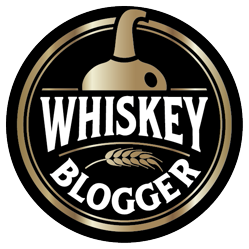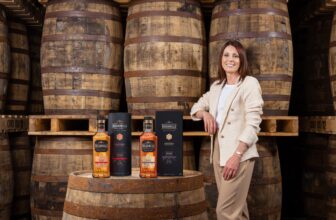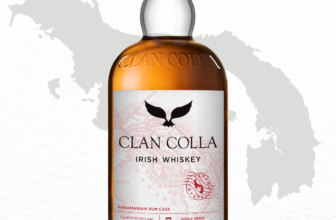Protecting Irish Whiskey
Some thoughts on Protecting Irish Whiskey.
“That men do not learn very much from the lessons of history is the most important of all the lessons of history.” – Aldous Huxley.
You may know that I have written previously on the Irish Whiskey Renaissance and all of the excitement that accompanies the unprecedented and exponential growth of the Irish Whiskey Industry.
A Press release last week from the Irish Department of Food, Agriculture and Marine reminds us that The Irish Whiskey industry employs over 750 people and that exports have grown over 200% in the last 10 years. In 2014, nearly seven million cases of Irish Whiskey were exported to over one hundred countries. Exports are expected to grow to twelve million cases by 2020 and twenty four million cases by 2030. Three years ago, there were four whiskey distilleries in Ireland. By 2018, there may be over 20 Irish new Whiskey distilleries in Ireland.
The last time that Irish Whiskey experienced such growth was at the turn of the 19th and 20th centuries. But then it all crashed in the early 1900’s. One of the reasons it crashed was the introduction of Prohibition in America. At the time, there were three types of whiskey dominating the global market; Scotch, Irish and American. American whiskey was always going to recover with such a huge domestic market. That left Scotch whisky and Irish whiskey (which had actually been more popular in pre prohibition America than Scotch) to re-establish and rebuild their markets in America. Scotch made it, but Irish whiskey never recovered.
Prohibition and Irish Whiskey
The reason for this is that Irish whiskey became a victim of its own success. During prohibition, a huge black market developed in moonshine or fake whiskey. New make spirit straight from the illicit stills throughout America was force aged with wood shavings and coloured with caramel. The resulting rot gut – rocket fuel raw spirit – was then sold as either Bourbon or Irish whiskey with makey up Irish and Bourbon labels such as “Donegan’s Pure Old Irish Whiskey” or “Old Kentucky Bear Paw Whiskey”. You get the picture I’m sure. The idea for these cheap imitations may have actually have originated in Ireland, for in the early 1900’s, at least one well known Irish midlands distillery was avoiding taxes by producing (off the books) a force aged and artificially coloured and flavoured cut price unaged “Irish whiskey” for sale to a large Irish working class population in London.
Scotch whisky was rarely copied by the black market moonshiners. Why? The malted barley used in half of Scotch whisky brands is dried over turf or peat fires where unlike Irish whiskey, the smoke makes direct contact with the drying malt. That’s why peated Scotch whisky generally has a distinctive smokey flavour. The Moonshiners found it too difficult to imitate the peatiness which many Americans associated with Scotch, so they focused on copies of Irish Whiskey and Bourbon instead.
At the end of prohibition, the reputations of both Irish and Bourbon whiskeys were in tatters with the drinking public who associated Irish Whiskey and Bourbon with the poor quality moonshiner imitations. Bourbon recovered its reputation on the back of distilleries such as Brown Forman and a few others whose names were already known and trusted by the US market as they had been allowed to maintain limited production of normal quality “Medicinal” whiskey during prohibition. The problem with Irish whiskey is that none of the 50 or 60 Irish whiskey brands from the 30 or so whiskey distilleries in Ireland at that time were well recognised brands in America, even before prohibition. That’s another reason why they were so easy to fake with imitation Irish Whiskey. Individual Irish whiskey brands were not then as well recognised in America as they are today. It was all just “Irish whiskey” under a myriad of Irish sounding labels. Think of how many people view say “French” wine today.
Scotch also had another protector. The Powerful and cohesive Distillers Company Limited (DCL) forcibly united many smaller Scotch whisky brands under one solid banner and dramatically streamlined and moulded the Scotch whisky industry into a single unified force and brand.

New Challenges for the Irish Whiskey Industry
It has taken nearly 100 years for the Irish whiskey industry to recover from collapse and prosper, but is this current recovery safe or is it still exposed to another crash?
Speaking in recent months to my own senior contacts in the larger Irish distilleries, the one major fear they share is that just one new cowboy distillery or marketeer, could damage the whole industry by cutting corners in production quality or brand identity. Innovation is fine, but quality, unity and heritage come first!
Protecting Irish Whiskey
The new Irish Whiskey Association was formed last year to bring together all the key commercial stakeholders in the Irish whiskey industry. The spirit is supposed to be one of “Co-opetition” with the larger more established distilleries actively offering support and mentoring to newer entrants. I am proud to say that IrishWhiskey.com has played our own small part in facilitating introductions to the Association for some of the new Irish Whiskey labels.
Many of these new labels are “white label” whiskeys which are produced by an approved Irish Whiskey distillery for those who have recently built or are planning to build a distillery and so, have no product or are waiting for their own product to mature. This method is also used by companies who will never build a distillery or by companies and individuals who just want to create a vanity label for their own reasons. There is nothing wrong with this in my opinion as it creates new brands and labels in the way that whiskey bonders such as Mitchells did years ago when they created Green Spot and Yellow Spot. There is however a huge responsibility on these new and small emerging Irish whiskey companies to ensure that they fully comply with all current regulations and guidelines. This is especially true in whiskey labeling and advertising claims to ensure no confusion on provenance and history of each brand
More definitely needs to be done to tighten up in this regard by the Irish Whiskey industry.
In the last week, the Irish Minister for Food Simon Coveney has introduced new regulations to grant “Geographic Indication” protected status to actual Irish Whiskey, Poitin and Irish Cream products under European Union law. Essentially, this lays down quality parameters for Irish whiskey products within the European market and also dictates that they can only be produced on the island of Ireland. It will also mean that only whiskey produced in Ireland can be legally sold in the European Union as “Irish Whiskey”. GI does not apply to non whiskey products (Irish Whiskey Glasses etc) or to the greater Irish Whiskey brand.
Obviously, the brand of “Irish Whiskey” is now more important as ever. As the owner of Irish Whiskey.com and many other Irish Whiskey related domains and websites, I look forward to living up to my own responsibilities in protecting and developing the name, reputation and heritage of the Irish Whiskey brand and sector in coming years.
As the Irish Whiskey sector moves forward with confidence and purpose, we do well to remember our past century and the more recent words of Bill Gates.
“It’s fine to celebrate success, but it is more important to heed the lessons of failure”.






